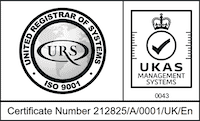Reducing the costs and risks in bringing SAF to the aviation market
Bringing a new synthetic aviation turbine fuel (SATF) to market requires undergoing a rigorous international evaluation and approval process to ensure safety, compatibility, and performance across the aviation ecosystem. While this process is essential, it can be both technically demanding and financially intensive—posing a significant barrier for fuel developers. The UK SAF Clearing House plays a vital role in addressing this challenge by offering expert support and guidance to help producers navigate the qualification pathway more effectively and accelerate market readiness.
Our mission
The key objectives of the UK SAF Clearing House are to:
Facilitate testing and qualification of SAF in the UK for initial assessment and optimisations (pre-screening)
- Support evaluation and testing to ASTM D4054 protocols
- Provide assistance to de-risk the testing process for SAF producers
- Accelerate deployment of SAF to support the target of 10% SAF by 2030
- Signal the UK’s commitment to building a thriving domestic SAF industry
- Collaborate with other SAF Clearing Houses to share data and support the global development of SAF
The UK SAF Clearing House was launched in November 2023 by the Department for Transport (DfT). It aims to support the UK’s emerging sustainable aviation fuels sector.
The aviation industry plays an important role in responding to the climate emergency, and is rising to the challenge, with emissions targets, increasingly more efficient aircraft and the first global, sectoral carbon market-based measure, CORSIA.
A strong and growing demand for SAF
There are some very compelling drivers for the industry to reduce their emissions:
 UK ETS: Airlines are required to hold allowances for their emissions as part of the UK Emissions Trading System (UK ETS) which sets a cap on carbon emissions from the aviation sector.
UK ETS: Airlines are required to hold allowances for their emissions as part of the UK Emissions Trading System (UK ETS) which sets a cap on carbon emissions from the aviation sector.- CORSIA: the Carbon Offsetting and Reduction Scheme for International Aviation is a global market-based measure established by the International Civil Aviation Organisation (ICAO) that requires airlines to offset their international flight emissions above a specified baseline. CORSIA recognises the importance of SAF, and this opens up a global market for fuels technologies.
SAF taking off at UK airports
SAF is a key part of the solution for the aviation industry to reduce its carbon emissions. UK airports are already trialling and investing in SAF infrastructure to enable them to meet their ambitious net zero plans. These include the UK's four largest airports:
 London Heathrow Airport: SAF has been rolled out and the first SAF flight took off from the airport in June 2021. In 2022, Heathrow launched a SAF Incentive scheme and the 2025 incentive aims to align with Heathrow’s target to be 1% above the U.K. mandate in 2030, achieving 11% SAF use at the airport.
London Heathrow Airport: SAF has been rolled out and the first SAF flight took off from the airport in June 2021. In 2022, Heathrow launched a SAF Incentive scheme and the 2025 incentive aims to align with Heathrow’s target to be 1% above the U.K. mandate in 2030, achieving 11% SAF use at the airport.- London Gatwick Airport: Its fuelling structure is SAF-ready and SAF was used in all Easyjet flights during the COP26 climate conference in Glasgow.
- Manchester Airport: set to become the UK’s first airport to have a from production plant via an existing pipeline
- Stansted Airport: Ryanair committed to purchasing 1,000 tonnes of SAF for flights to and from the airport, while Jet2 started using blended SAF during the summer 2024 season.*
*Source: Exploring Sustainable Aviation Fuel opportunities in the East of England
Did you find this useful? | Join our LinkedIn Group for the latest news: |
